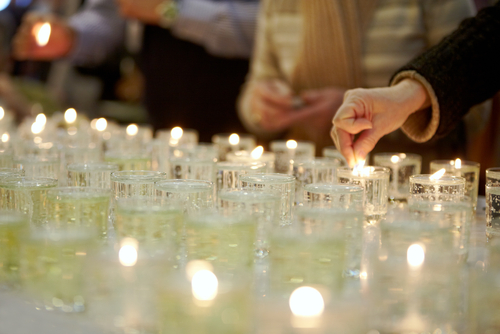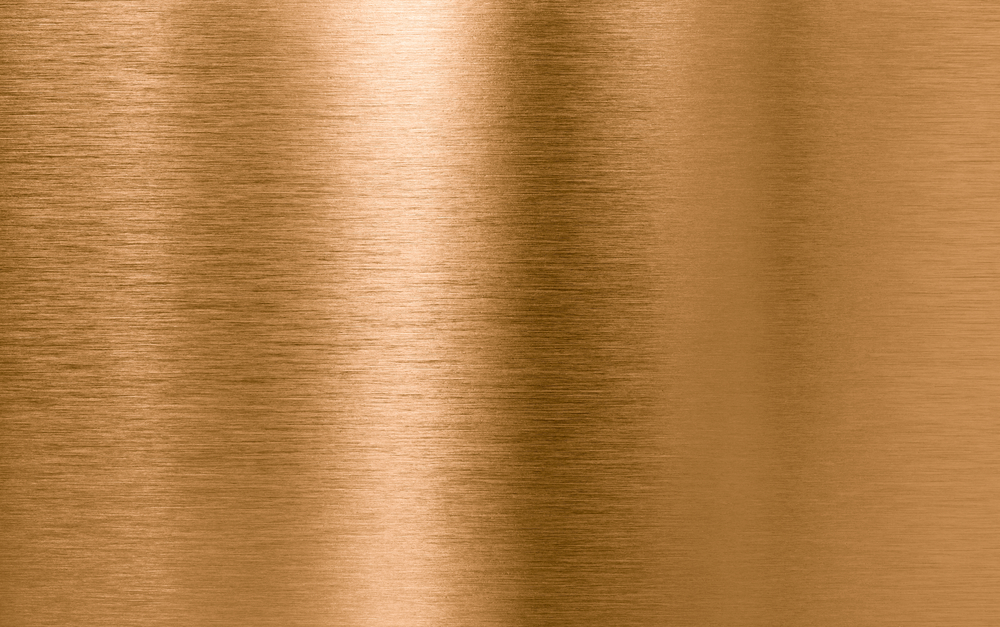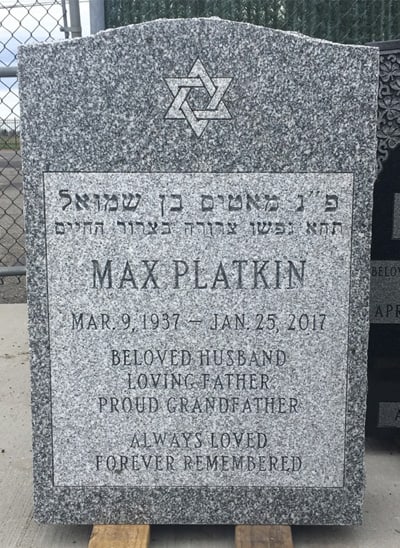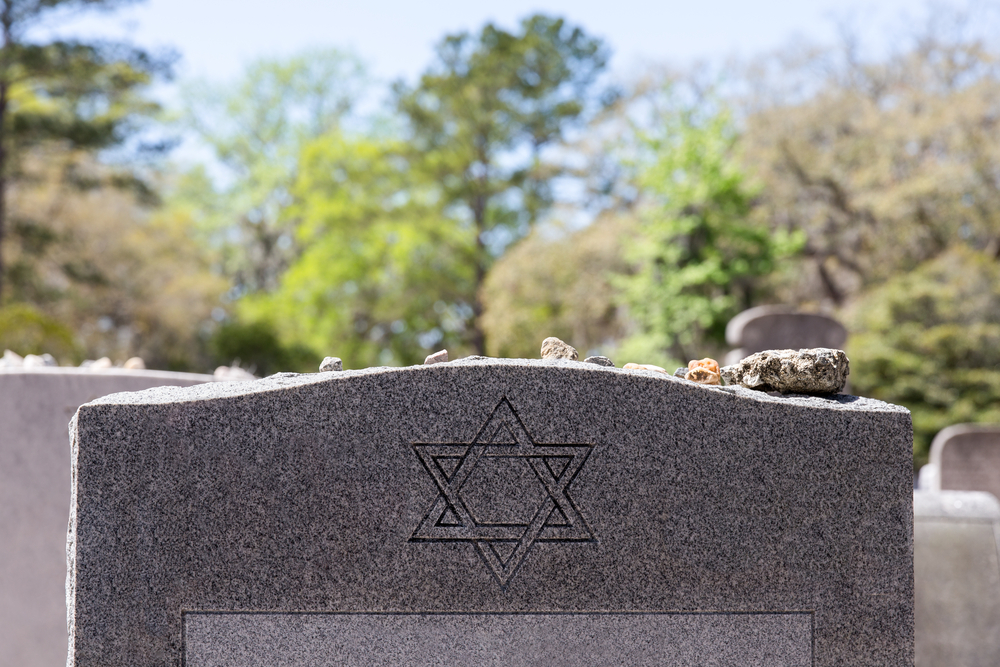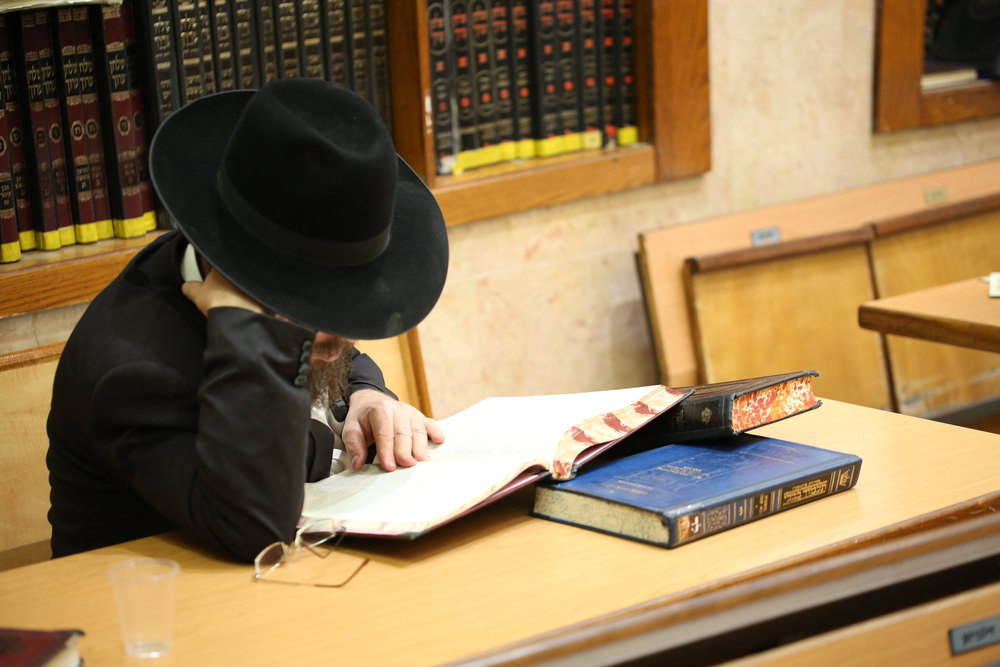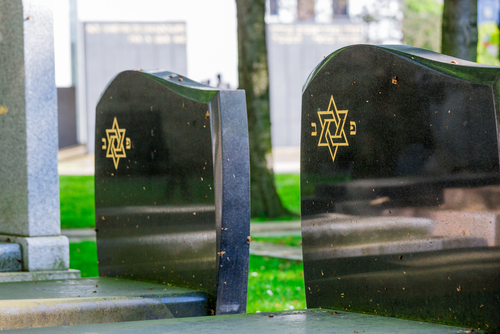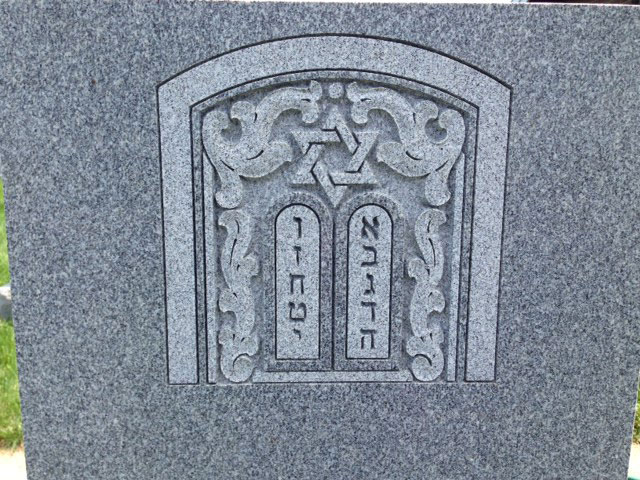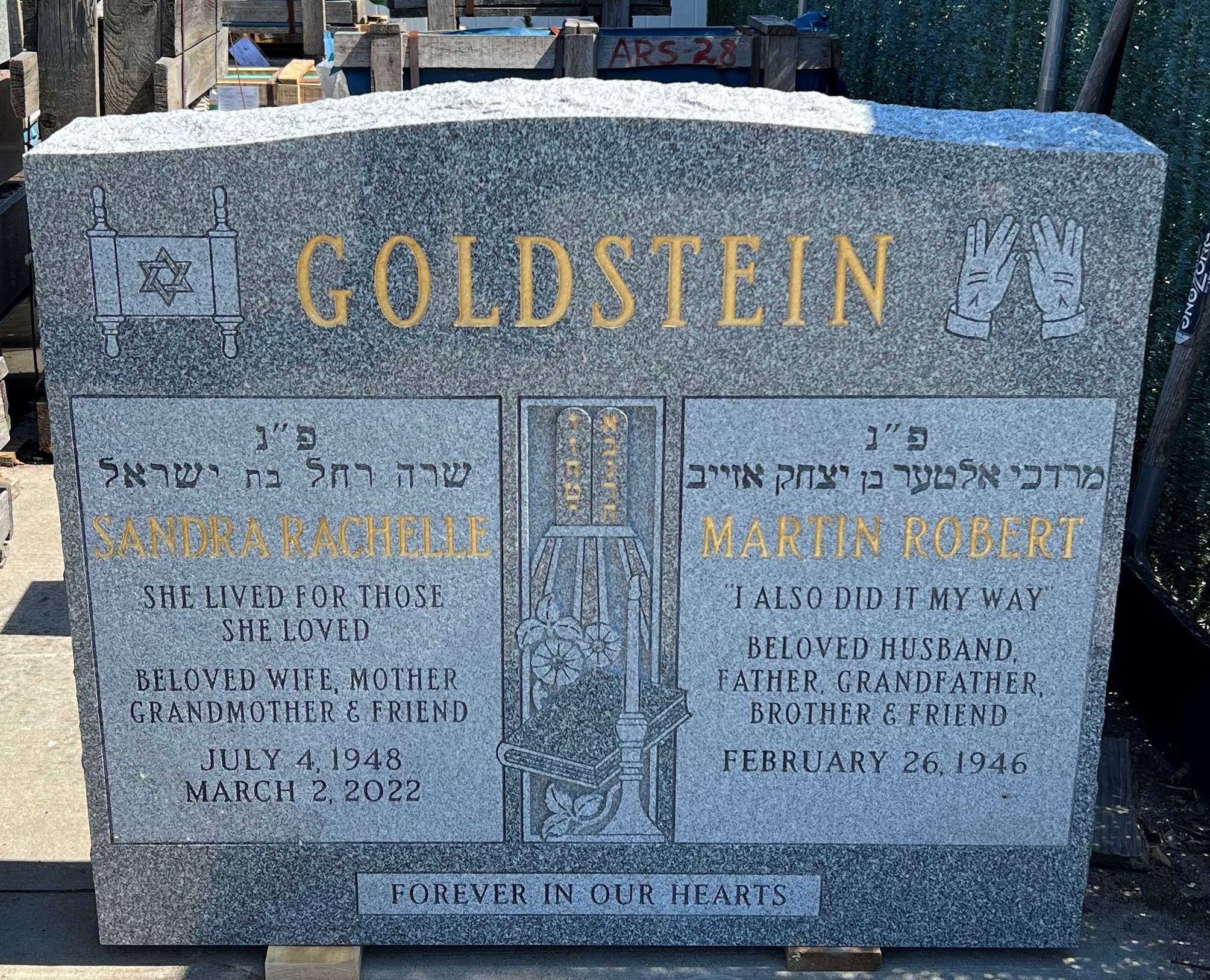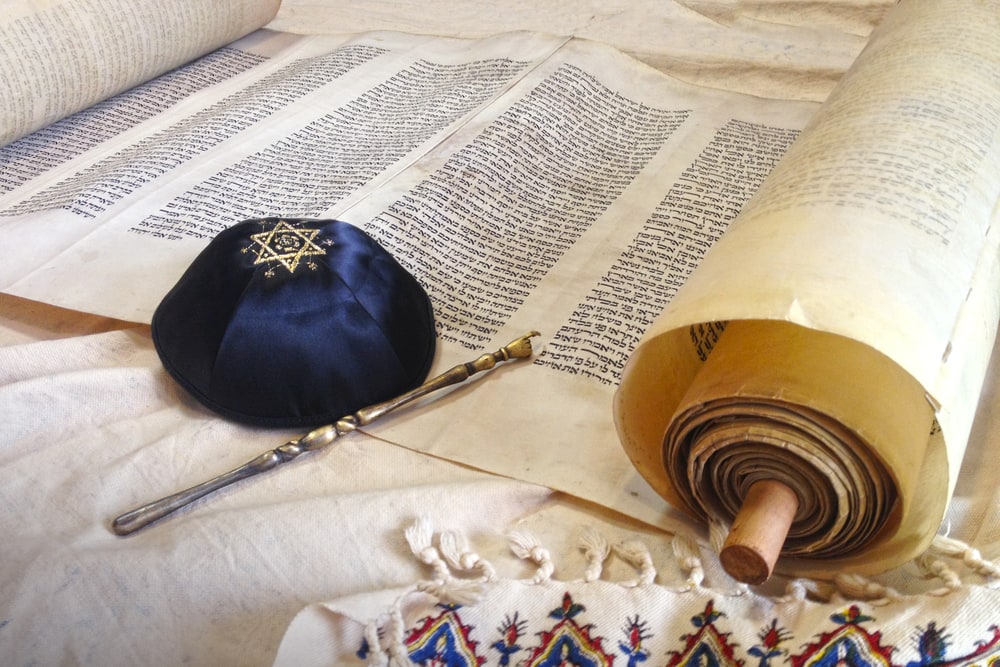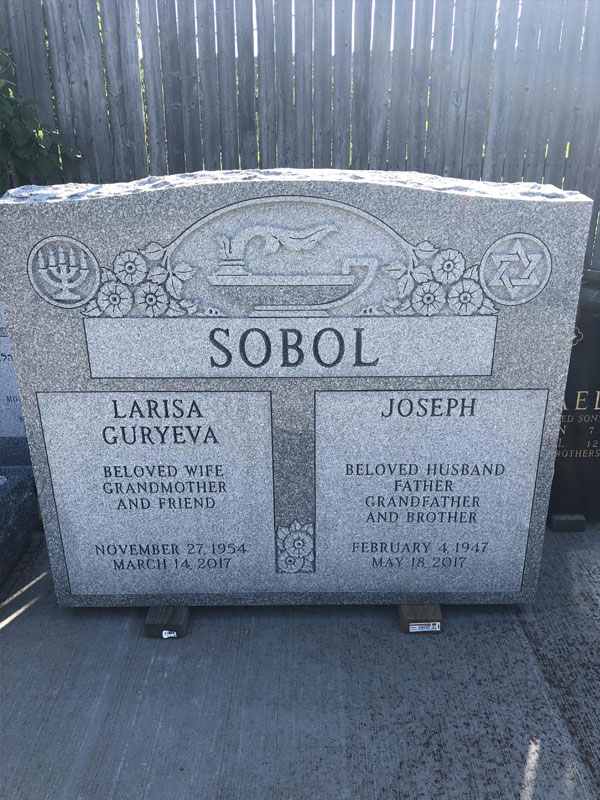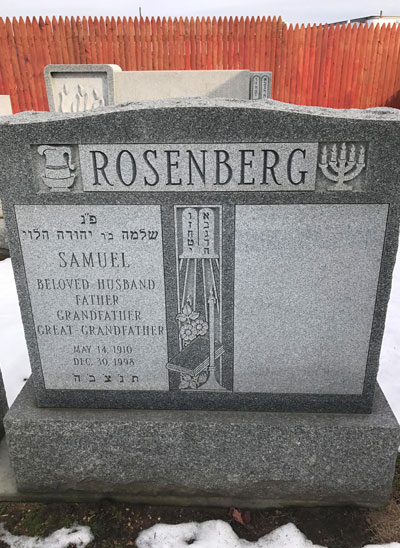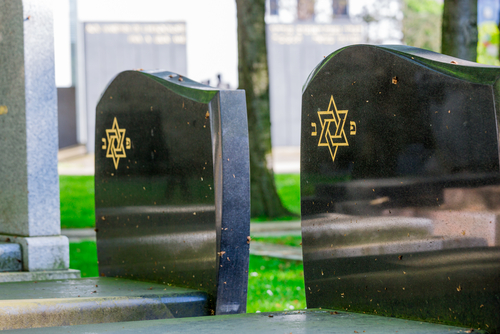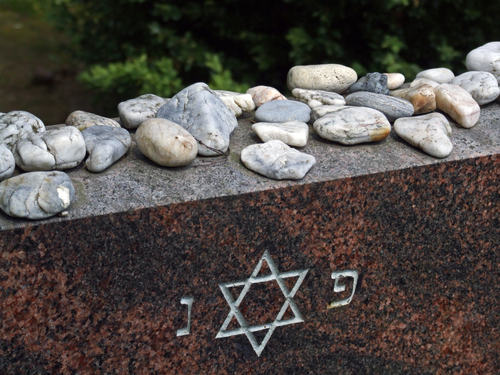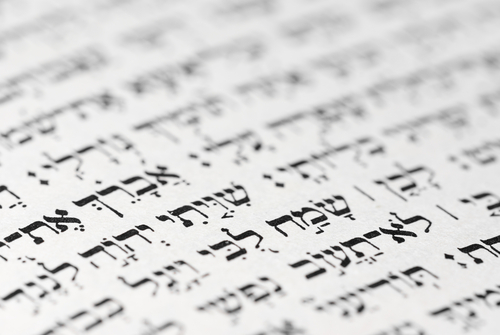
Guide to Hebrew Inscriptions on Jewish Headstones
Making arrangements after a loved one passes away is an emotional and stressful process. Beyond notifying friends and family, coordinating with the rabbi about memorial services, and hosting shiva, families must also select a Jewish headstone. At Fox Monuments, we are committed to making this process as smooth and stress-free as possible. Our experienced team provides guidance, support, and professional advice every step of the way to ensure that your loved one’s memorial is meaningful and lasting.
Once you have chosen a Jewish headstone company, the next critical step is selecting the headstone inscription. Many consider the inscription the heart and soul of the monument. It serves as a permanent tribute to the life, faith, and legacy of the departed. While most Jewish headstones feature English text, many also include Hebrew inscriptions that convey faith, values, and tradition. These inscriptions honor your loved one while reflecting Jewish heritage and culture.
In this guide, we will explore the five most common Hebrew inscriptions for Jewish monuments, as well as important considerations when planning your Jewish headstone.
1. Here Lies: פּ״נ
One of the most recognized Hebrew phrases on Jewish headstones is פּ״נ, which stands for “Po Nikbar” or “Po Nitman,” meaning “Here Lies.” This phrase is typically positioned at the top of the monument and serves as the natural introduction to the memorial.
While this inscription is traditional in many Jewish communities, not all headstones include it. Some monuments may instead feature symbolic imagery, such as a menorah, Star of David, or other Jewish symbols. At Fox Monuments, we help families decide whether this traditional phrasing is right for their loved one’s headstone and can provide custom designs that incorporate meaningful symbols alongside the inscription, including a menorah or Jewish star.
2. The Hebrew Name
Another common inscription on Jewish headstones is the Hebrew name. For individuals with a strong commitment to Jewish faith and tradition, the Hebrew name is just as important—sometimes even more so—than the English name. In some cases, the Hebrew name may be the primary identifier on the monument.
The Hebrew name often follows the phrase “Here Lies…” on the headstone. Families may choose the Hebrew name based on parental wishes, ancestral lineage, or personal significance. At Fox Monuments, we can assist in ensuring the Hebrew name is accurately inscribed, honoring your loved one’s faith and heritage with precision and care.
3. Hebrew Names of Parents
In Jewish tradition, family lineage is highly valued. Many families choose to include the Hebrew names of the deceased’s parents on the monument. This practice connects the individual to their ancestors and maintains the tradition of strong family ties.
Typically, inscriptions include the words בן (son of) or בת (daughter of), followed by the Hebrew name of the father—and sometimes the mother. While father’s names are traditional, we can work with families to incorporate both parents or other notable relatives.
Because Hebrew names may be difficult to locate, many families prefer to pre-plan their Jewish monument to ensure accuracy and respect for tradition. At Fox Monuments, we provide guidance to help families navigate this process and select inscriptions that reflect the family’s values and heritage.
4. Date of Death in Hebrew Calendar
Jewish headstones often include the deceased’s birth and death dates according to the Hebrew calendar. Unlike the western calendar, the Hebrew calendar begins 3,760 years before the common era, making it unique in structure and calculation.
For example, the year 2018 corresponds to 5779 in the Hebrew calendar. Some families simplify the year by omitting the 5,000, recording it as 779 instead. Including the Hebrew date is optional, but it provides a meaningful cultural connection and allows for observance of yahrzeits (annual memorials) according to Jewish tradition.
At Fox Monuments, we can assist families in converting dates to the Hebrew calendar and inscribing them accurately on the headstone, ensuring your loved one’s memorial aligns with both religious tradition and family preferences.
5. Jewish Epitaph: ת נ צ ב ה
A final common Hebrew inscription is ת נ צ ב ה, an abbreviation of the phrase “May his soul be bound up in the bond of eternal life.” This epitaph is usually placed at the bottom of the headstone and serves as a blessing for the departed soul.
Not all Jewish headstones, single or double monument, or otherwise, use this specific epitaph; some families choose other scripture-based phrases or personalized messages that reflect the life and character of the deceased. Fox Monuments provides guidance on traditional and custom epitaphs, helping families select wording that is both meaningful and lasting.

Additional Considerations for Your Jewish Monument
Selecting a Jewish headstone involves more than choosing inscriptions. Families must also consider the type of monument, materials, and design features that best honor their loved one. Some common services offered by Fox Monuments include:
- Single and Double Headstones: Personalized designs for individual or family plots.
- Custom Etchings: Incorporation of symbols, images, or personal motifs.
- Memorial Benches and Mausoleums: Alternative ways to commemorate loved ones.
- New Inscriptions and Lettering: Updating older monuments with refreshed text or restored Hebrew inscriptions.
- Monument Cleaning and Repair: Maintaining the beauty and dignity of your family’s memorial over time.
We take pride in guiding Long Island’s Jewish community through the entire process, from selection to installation, ensuring that every detail reflects both faith and memory.
Pre-Planning a Jewish Headstone
Pre-planning allows families to make thoughtful decisions without the pressure of grief. By planning ahead, you can:
- Verify accurate Hebrew names for the deceased and ancestors.
- Decide on inscriptions, symbols, and materials.
- Avoid delays in monument creation and installation.
- Ensure the memorial aligns with both family tradition and religious practices.
At Fox Monuments, our team works closely with families to create a memorial that honors their loved ones while adhering to Jewish traditions. Our pre-planning services provide peace of mind and ensure every monument is a lasting tribute.
Why Choose Fox Monuments for Your Jewish Headstone
With decades of experience serving Long Island’s Jewish community, Fox Monuments is dedicated to creating memorials that are both respectful and meaningful. Our services combine craftsmanship, attention to detail, and compassion for every family.
From single Jewish headstones to double monuments, mausoleums, and memorial benches, we provide comprehensive solutions tailored to your needs. Our team assists with:
- Selecting the appropriate Hebrew inscriptions.
- Translating names and dates accurately.
- Customizing designs with symbols and etchings.
- Providing guidance on pre-planning and installation.
We understand the emotional weight of this process and aim to make it as smooth as possible, providing support every step of the way.
Conclusion
Hebrew inscriptions on Jewish headstones hold deep significance, honoring faith, family, and legacy. From פּ״נ at the top to ת נ צ ב ה at the bottom, these inscriptions reflect centuries of tradition while celebrating the individuality of your loved one.
At Fox Monuments, we provide the guidance and craftsmanship necessary to create memorials that will stand the test of time. Whether you are selecting a headstone, planning an inscription, or pre-planning for the future, our team is here to ensure that your loved one’s memory is honored with dignity, care, and respect.
For families on Long Island seeking Jewish monuments and memorials, Fox Monuments is the trusted choice for compassionate, professional service and beautifully crafted memorials. Not only will it honor your faith, it will be a loving, enduring tribute to your loved one and provide a place to visit for years to come.
